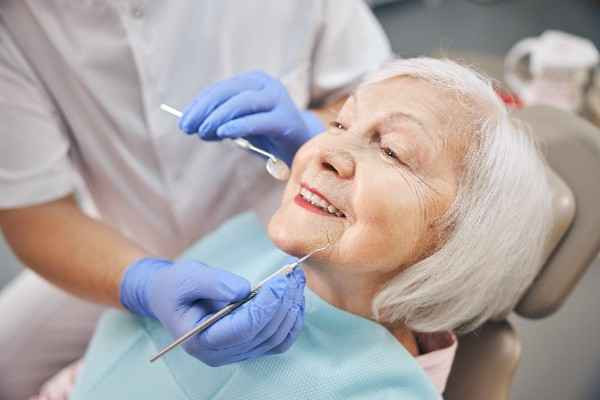views
Dental emergencies aren’t always dramatic. You might imagine sudden trauma or unbearable pain but many urgent dental issues begin quietly, often overlooked until they worsen. For the people of Dunfermline, recognising the subtle signs early can mean the difference between a simple fix and a complicated procedure. That’s where a trusted emergency dentist in Dunfermline comes in.
Meanwhile, a hygienist in Dunfermline plays a vital role in preventing many of these emergencies before they start. Let’s explore what actually qualifies as a dental emergency, what doesn’t, and how you can take the right action without the panic.
Common Types of Dental Emergencies
Not all emergencies scream for attention but they still demand it. Some require immediate treatment to prevent further damage or infection.
Recognisable dental emergencies include:
- Severe toothache or pain that doesn’t subside
- Knocked-out or loose teeth after trauma
- Broken or chipped teeth that are sharp or painful
- Swelling in the face, jaw, or around a tooth
- Bleeding that doesn’t stop within 15–20 minutes
- Signs of infection – bad taste, pus, or foul smell
- Cracked fillings, crowns, or bridges exposing nerves
Even if the pain is mild, these situations can quickly deteriorate. Contacting an emergency dentist in Dunfermline ensures that the damage is managed before it becomes more serious.
Dental Issues That Feel Urgent but Aren’t Always
Sometimes, an issue may feel like an emergency but could be manageable with a scheduled dental appointment.
Issues that often seem urgent include:
- Mild sensitivity to cold or hot drinks
- A dull ache that comes and goes
- Small chips in teeth without pain
- A lost crown that doesn’t hurt
- Slight bleeding after flossing or brushing
These may still need professional care — but not necessarily the same day. A routine check-up or a hygienist appointment might be the better route. A hygienist in Dunfermline can assess these signs and guide you on whether escalation is needed.
Is it a Dental Emergency or Not?
|
Symptom |
Emergency Dentist Needed? |
Can Help? |
|
Sudden severe toothache |
✅ Yes |
🚫 No |
|
Slight bleeding when brushing |
❌ Not urgent |
✅ Yes |
|
Knocked-out tooth |
✅ Immediate attention required |
🚫 No |
|
Sensitivity to hot/cold |
❌ Only if persistent |
✅ Yes |
|
Swollen face or jaw |
✅ Yes – may indicate infection |
🚫 No |
|
Bad breath or gum irritation |
❌ Not always urgent |
✅ Yes |
When in Doubt, Always Call
Dental problems aren’t always straightforward. If you’re unsure whether something counts as an emergency, it’s best to call your dentist. Describing your symptoms helps the dental team triage your case appropriately.
Signs that it’s better to call:
- Pain interrupts your sleep or daily function
- Symptoms have worsened over 24–48 hours
- Home remedies and over-the-counter relief aren’t helping
- You’re experiencing fever or general illness along with pain
- A tooth appears discoloured, mobile, or misaligned suddenly
It’s always better to get peace of mind from an expert than ignore signs that could lead to lasting damage.
How a Hygienist in Dunfermline Helps You Stay Emergency-Free
Preventive care is the foundation of a healthy mouth. A hygienist in Dunfermline can spot early warning signs before they become emergencies, helping you avoid pain, cost, and stress.
Key roles your hygienist plays:
- Plaque and tartar removal to reduce risk of decay
- Gum health monitoring, identifying gingivitis before it worsens
- Spotting enamel wear or tooth erosion early
- Teaching proper flossing and brushing techniques
- Recommending tailored dental products for your needs
- Helping manage conditions like bad breath, staining, and sensitivity
Routine appointments every 6 months can significantly lower your chances of needing an emergency dentist later on.
Managing Pain Until You’re Seen
Sometimes, you may not get an immediate appointment — especially after-hours or on weekends. Here’s what you can do at home while you wait.
Safe at-home dental pain relief tips:
- Rinse gently with warm salt water
- Apply a cold compress to your cheek (not directly on the tooth)
- Avoid chewing on the affected side
- Stick to soft, non-irritating foods
- Take paracetamol or ibuprofen (never apply painkillers directly to gums)
- Prop your head up to ease swelling at night
These are temporary measures — not cures. Visit an emergency dentist in Dunfermline as soon as possible.
Small Symptoms That Hide Big Problems
Not every emergency comes with intense pain or visible damage. In fact, some of the most dangerous dental issues begin with subtle or nagging signs that are easy to dismiss.
Watch out for these low-key symptoms:
- A metallic taste in your mouth could indicate a failing filling
- Gum swelling without pain may be a sign of an abscess forming
- Intermittent bad breath might point to hidden decay or gum disease
- A tooth that feels “off” – loose, slightly raised, or oddly sensitive
- Jaw clicking or stiffness could signal TMJ problems needing early management
- Sudden changes in bite alignment might mean an underlying infection or trauma
Even if you're not in visible discomfort, these symptoms warrant professional attention. Early detection is often what saves your tooth (and your budget).
Your Action Plan for a Dental Scare
Knowing what to do in the moment can significantly improve the outcome of a dental emergency — and reduce panic.
Follow this quick plan when something feels wrong:
- Stay calm– panicking can raise blood pressure and make swelling worse.
- Check for visible damage– bleeding, broken teeth, swelling, or pus.
- Rinse with lukewarm water to remove debris and soothe irritation.
- Take over-the-counter pain relief, like paracetamol or ibuprofen.
- Call an emergency dentist in Dunfermline for guidance and appointment.
- Avoid eating on the affected side or disturbing the area.
- If a tooth is knocked out, keep it in milk or a tooth preservation kit until you’re seen.
Having a simple action plan in mind makes all the difference during dental distress — for adults and children alike.
Understanding Dental Sensitivity – A Hidden Emergency?
One often-misunderstood symptom is sensitivity. While it’s common, prolonged or severe sensitivity may point to:
- Receding gums
- Tooth decay
- Cracks or worn enamel
- Exposed nerves
A hygienist in Dunfermline can treat minor sensitivity with fluoride treatments or sealing agents. However, when sensitivity causes sharp pain or persists for days, it may be time to seek urgent care.
Conclusion
Not every dental emergency looks dramatic, but that doesn’t mean it should be ignored. Whether you’re facing a cracked tooth, unexplained swelling, or just a persistent ache, the right course of action starts with recognising the signs. A qualified emergency dentist in Dunfermline can address urgent needs quickly, while your hygienist in Dunfermline helps prevent these issues before they start. At EDP Group, our goal is to help you stay pain-free, panic-free, and smiling with confidence.




Comments
0 comment